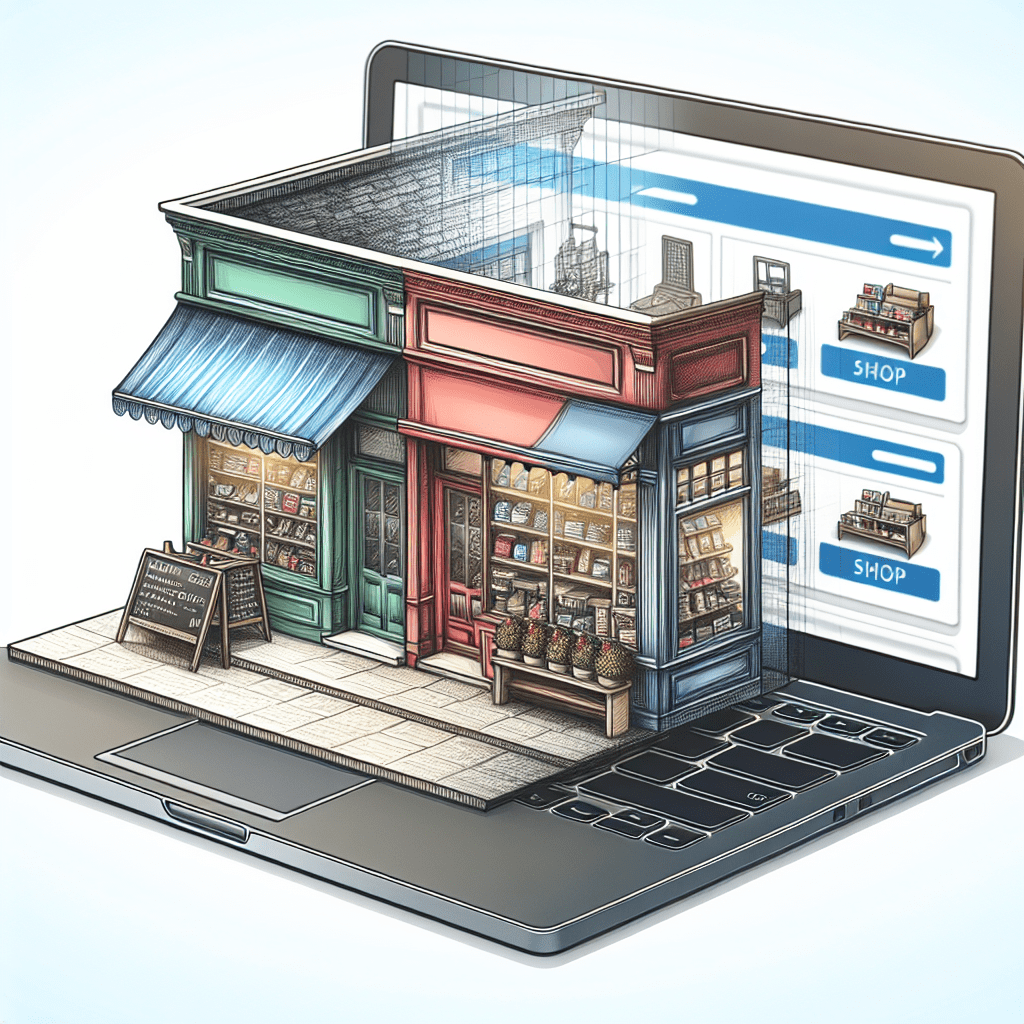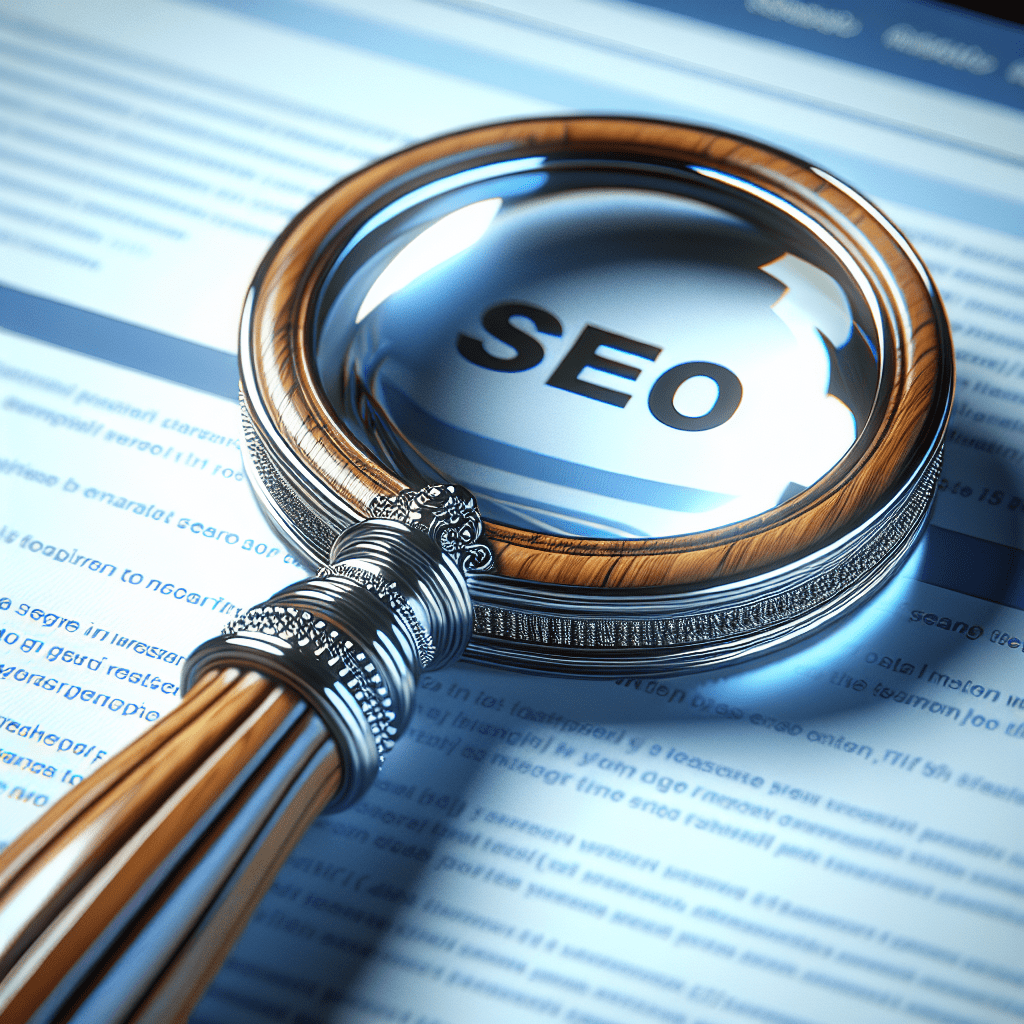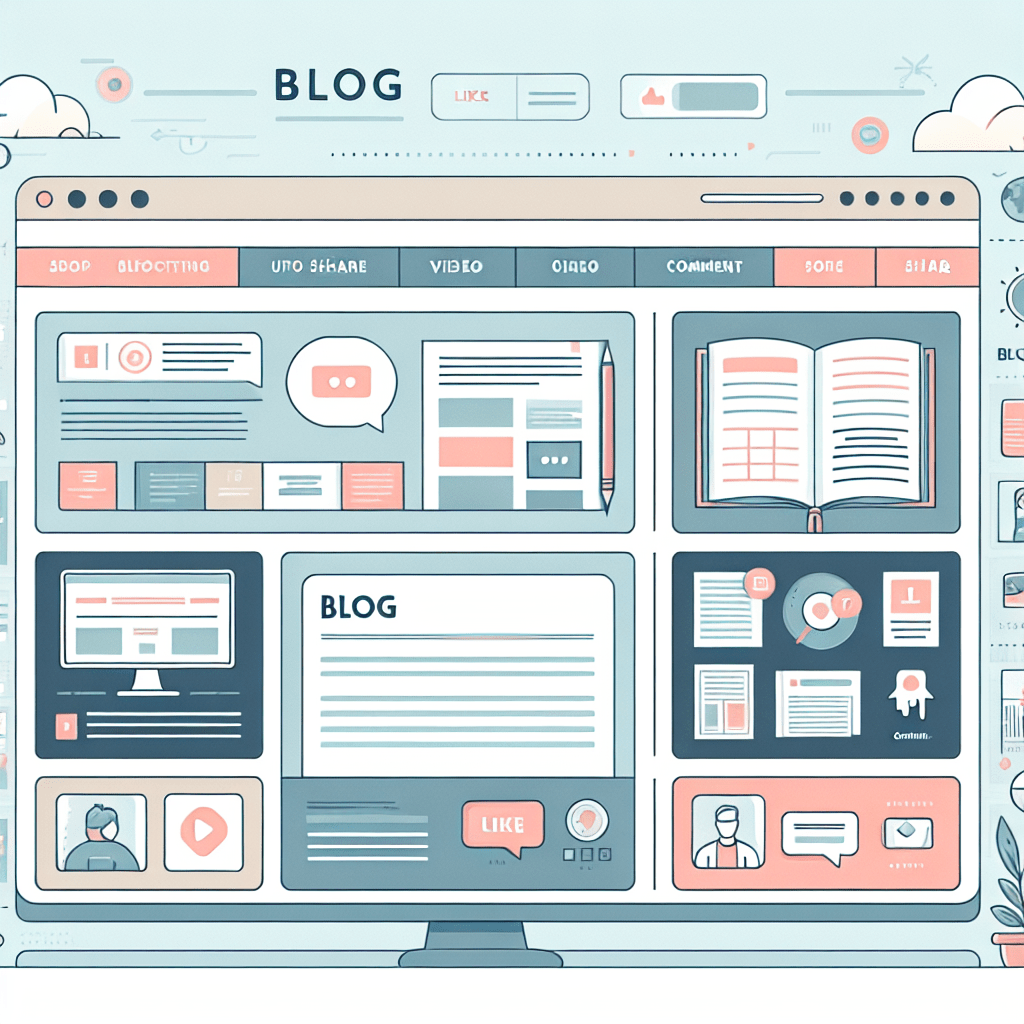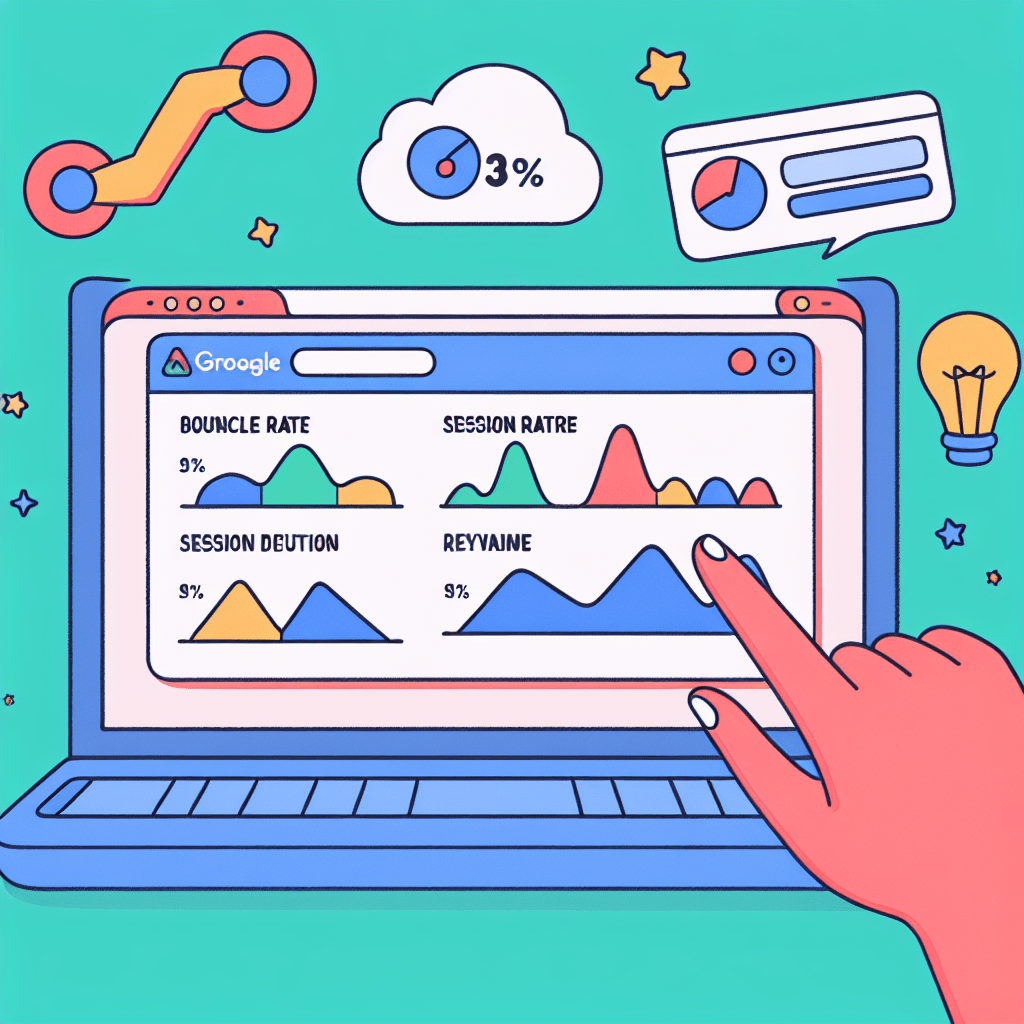Introduction

In today’s hyper-connected world, every small business needs a website. The internet is the driving force pushing businesses to new heights. For small business owners and entrepreneurs, having a website is no longer a luxury—it’s a necessity. Think of your website as your digital storefront, open 24/7, ready to welcome customers from around the world. It’s not just an online brochure; it’s a powerful tool that enhances marketing, sales, customer service, and brand building. In this blog post, we’ll explore why every small business needs a website, why a website is essential for modern business success, and how it can transform your operations.
The Role of a Website in Branding
Establishing Credibility
A well-designed website instantly adds credibility to your business. In a world where consumers often turn to the internet to validate a company’s legitimacy, having a professional website can make all the difference. Without one, your business might be perceived as untrustworthy or out of touch. A strong online presence assures potential customers that you are serious about your business and are here to stay.
Showcasing Your Brand
Your website is a canvas to showcase what your brand stands for. Through strategic design, compelling content, and seamless user experiences, it conveys your brand’s personality and core values. Consistency in branding across all customer touchpoints helps build trust and recognition, making your business memorable in the eyes of consumers.
Enhancing Customer Experience
Easy Access to Information
Today’s customers expect to find information quickly and easily. A website allows you to provide detailed information about your products or services, complete with FAQs and customer support options. This accessibility ensures that customers can learn about your offerings from the comfort of their homes, leading to higher satisfaction and engagement.
User-Friendly Navigation
A well-organized website with intuitive navigation helps users find what they need without unnecessary frustration. By creating a smooth browsing experience, you increase the chances of visitors staying on your site longer, exploring more pages, and ultimately converting into customers.
The Power of SEO in Driving Traffic
What is SEO?

Search Engine Optimization (SEO) is the practice of optimizing your website to rank higher in search engine results. Higher rankings mean more visibility, leading to increased traffic. For small business owners, mastering SEO is crucial for reaching new audiences and expanding your customer base.
How SEO Benefits Your Business
Implementing effective SEO strategies attracts organic traffic from search engines. This cost-effective approach reaches potential customers actively searching for products or services like yours. By capturing this audience, you can increase brand awareness and drive sales without relying solely on paid advertising.
Expanding Market Reach
Reaching a Global Audience
Unlike physical stores bounded by location, a website allows you to break geographical barriers and reach a global audience. Your offerings can be accessed by anyone, anywhere, at any time, opening up new opportunities for growth and expansion beyond your local market.
Targeting Specific Demographics
With tools like Google Analytics, it’s possible to track who visits your site and tailor your marketing efforts accordingly. Targeting specific demographics has never been easier, enabling precision in outreach that’s difficult to achieve with traditional marketing methods.
Driving Sales and Conversions
Online Sales Channels
For many businesses, a website serves as a vital sales channel. Whether through e-commerce platforms or lead generation forms, your website can directly contribute to your bottom line by facilitating transactions and capturing valuable leads. So you’re getting leads by creating a website. Thats why every small business needs a website.
Conversion Optimization
Your website can be optimized to convert visitors into paying customers. By employing strategies like A/B testing, clear calls to action, and user-friendly design, you increase the likelihood of turning a casual browser into a committed buyer. That’s why every small business needs a website.
Providing Customer Support
24/7 availability
One of the most significant advantages of a website is its round-the-clock operation. Customers can find answers to their questions or make purchases at any time, offering unparalleled convenience and boosting customer satisfaction.
Chatbots and Automated Support

Incorporating chatbots and automated support systems on your website can handle customer inquiries in real-time. These tools provide instant responses and improve customer experience, freeing your team to focus on more complex tasks.
Building Customer Trust
Customer Reviews and Testimonials
Featuring customer reviews and testimonials can build trust with potential buyers. Seeing positive experiences shared by others reassures them of your reliability and encourages them to choose your products or services over competitors.
Secure Transactions
If you sell products or services online, ensuring your website’s security is paramount. Implementing SSL certificates and other security measures protects customer data, fostering confidence and trust in your business. So every small business needs a website.
The Role of Content Marketing
Creating Valuable Content

A website provides a platform for content marketing, allowing you to share valuable content with your audience. This can include blog posts, videos, infographics, and more, positioning your brand as an industry authority.
Engaging Your Audience
By regularly updating your website with fresh content, you keep your audience engaged and encourage repeat visits. This not only builds brand loyalty but also improves SEO rankings, driving even more traffic to your site.
Cost-Effective Marketing
Digital Advertising
A website opens up opportunities for cost-effective digital advertising. You can run targeted ads on platforms like Google and Facebook, directing traffic straight to your site and maximizing your advertising budget.
Email Marketing Integration

Your website can serve as the hub for email marketing efforts. By collecting email addresses through sign-up forms, you build a list of potential customers and keep them informed about your products or services.
Analyzing Business Performance
Tracking User Behavior

With tools like Google Analytics, you can track how users interact with your website. This data provides valuable insights into what’s working and what needs improvement, helping you make informed decisions.
Making Data-Driven Decisions
The data collected from your website informs your business decisions. Whether it’s tweaking marketing strategies or refining product offerings, data-driven decisions are more likely to lead to success. Getting data so optimized is amazing. That’s why every small business needs a website.
Staying Competitive
Keeping Up with Competitors
In today’s competitive market, not having a website can put you at a significant disadvantage. Most businesses, regardless of size, maintain an online presence, and staying competitive means having one too. So if you are a newly business owner, you must have a website.
Adapting to Market Changes
A website allows you to quickly adapt to market changes. Whether it’s updating your product line or responding to customer feedback, having an online platform gives you the flexibility to pivot when needed.
Supporting Business Growth
Scalability
As your business grows, your website can scale with it. Whether you’re adding new products, expanding into new markets, or introducing services, your website can evolve to meet your needs.
Expanding Service Offerings
A website allows you to easily introduce and promote new services. This is especially useful for businesses looking to diversify their offerings and attract new customers.
Reducing Operational Costs
Automating Processes
Many business processes can be automated through your website, reducing the need for manual labor. This includes everything from customer support to order processing, lowering operational costs.
Lowering Marketing Expenses
Traditional marketing methods can be expensive. By focusing on digital marketing through your website, you reduce overall marketing expenses while still reaching a broad audience. That’s why every small business needs a website.
Conclusion
In conclusion, a website is an essential asset for any modern business. It not only enhances your online presence, but also provides numerous benefits, from driving sales and conversions to building customer trust. In today’s digital landscape, having a website is no longer optional—it’s a critical component of success. For small business owners and entrepreneurs, investing in a well-crafted website is investing in the future of your business. Don’t miss out on the opportunities that a strong online presence can offer. So, every small business needs a website
FAQs
1. What makes a website essential for modern businesses?
A website is crucial because it establishes credibility, enhances the customer experience, and expands market reach, among other benefits.
2. How does a website improve customer trust?
A website builds trust by providing secure transactions, customer reviews, and valuable content that reassures potential customers.
3. Can a website help reduce operational costs?
Yes, a website can automate various business processes and lower marketing expenses, reducing operational costs.
4. Why is SEO important for a website?
SEO improves your website’s visibility on search engines, driving organic traffic and increasing conversion chances.
5. How does a website support business growth?
A website supports growth by scaling with your business, introducing new services, and adapting to market changes.
